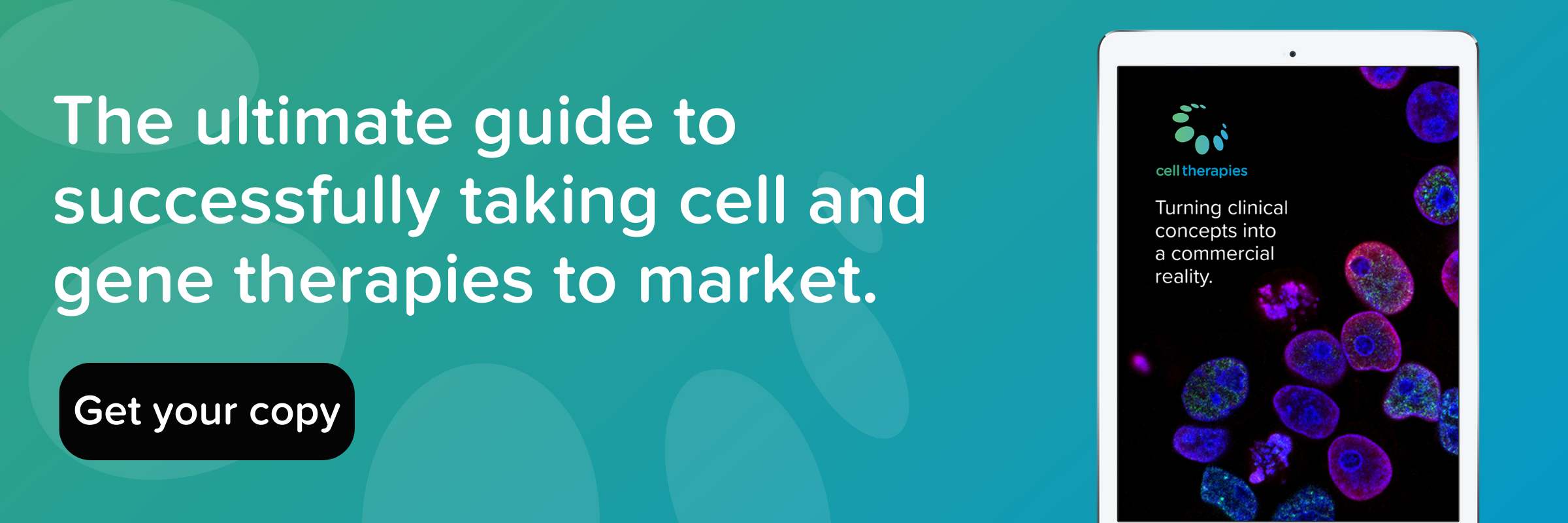Supply chain complexity has always been a factor in healthcare. Drugs are often time- or temperature-sensitive, which make maintaining product quality a significant challenge. But the emergence of cell and gene therapies (CGT), while revolutionary, comes with additional logistical problems that require careful and detailed planning to solve.
The COVID-19 pandemic has brought into sharp focus the difficulties of maintaining a robust supply chain across a variety of industries. Material shortages, the challenge of recruiting patients, the difficulty of operating during lockdowns, as well as delays in regulatory processes, have all impacted on the CGT sector’s ability to run clinical trials.
This only goes to highlight how vital it is to have a resilient supply chain in place. There’s no better way to test its effectiveness than by how it recovers from an unexpected event like COVID-19.
Ideally, when establishing a supply chain, you need to create an ecosystem that is populated by allies and partners with whom you have strong relationships. Organizations that share your values and can adapt to help you progress, no matter what potential disruptions appear.
Here are some areas to consider ensuring that your supply infrastructure is up to the task.
Fortifying your supply chain
1. Map out your chain’s structure and ascertain its critical features
Timing is paramount to clinical trial success. Firstly, starting material, such as apheresis, needs to be obtained from a patient. It then needs to progress through a manufacturing process, and then be returned to the patient within a predetermined period that is guaranteed and maintained consistently. Delays in this timeline could result in disease progression or even death of the patient, depending on the indication.
Therefore, it’s vital to understand your entire supply chain holistically. You need to identify every step in the manufacturing process and understand how they impact on each other.
Examine where the critical hand-off points are and understand the risks for each step in the manufacturing process. Investigate whether there are opportunities to mitigate these risks, perhaps through automation.
Because autologous cell therapies are personalised products with a batch size of one, manufacturers must comprehensively monitor their product from cell collection, through manufacturing, to patient delivery.
This is an extremely resource-intensive process requiring both Chain of Identity (COI) and Chain of Custody (COC) controls. COI ensures that the starting tissue or cells and the resulting drug product are linked to the patient throughout the entire process, usually by way of a unique patient ID number and product batch number.
COC on the other hand gathers data points such as staff handling information, temperature and storage conditions, the procedures performed, and the location, date, and time of those events. Once the therapy is administered, the COI and COC become part of the health system and provide the traceability required to ensure patient safety for future products and doses.
2. Determine your risks and monitor continually
It’s common for companies to have risk management procedures that identify, analyze, evaluate, and mitigate risks. This typical approach provides a solid foundation, helping to protect individual vulnerable assets, but can be challenged when endeavoring to provide guidelines for the scale, complexity, and uncertainty of global supply chains.
This is where establishing strong relationships with partners can mitigate potential vulnerabilities. An experienced Contract Development & Manufacturing Organization (CDMO) can offer established processes, control of materials and product logistics that will prevent disruptions to clinical supply.
3. Build out your digital capabilities
It’s wise for CGT companies to invest early in building a digital architecture that can support the patient journey. The data sourced from digital tools can provide a critical competitive advantage by demonstrating that you are delivering against promised health care outcomes in a timely manner.
This evidence can further strengthen value propositions and help you gain market access and market share. While some digital technology needs to be purpose-built, other applications, such as back-office support services, can be utilized from existing biopharma technology infrastructure.
4. Invest in collaboration
The traditional business and operating models of biopharma companies are often not ideal for bringing to market highly customized products like cell therapies. Because CGTs require precise material sourcing, tracking, and delivery, biotechs need to define and build the infrastructure that enable them to support the manufacture and delivery of the products at scale. Add to this, the importance of timing to the process, the need to be familiar with Current Good Manufacturing Practice regulations (cGMP), and integrations with clinical sites. In this fast-changing environment, your CDMO—ideally one with a global team offering direct experience in cell and gene therapy trials— can be helpful in overcoming these logistical and manufacturing concerns.
5. Build in flexibility
The most useful attribute to possess when faced with the unexpected is flexibility. Utilize standardized processes so you can utilise alternative materials or facilities, when necessary. Identify two or three potential suppliers early during the development process, rather than just choosing one and looking no further. Have plans in place to select alternative transportation routes or couriers when required. And spend the time to establish procedures that can respond to emergencies.
Preparation is key
The path to developing and commercializing a cell and gene therapy product is complex, and there are many hurdles to overcome. Building resilience into your supply chain will reduce the possibility of disruption to the development process.
Start by identifying the vulnerabilities, then define and apply resilience measures. Continual monitoring and review are necessary to ensure you remain aware of changing circumstances. Flexibility and rapid decision-making are both vital attributes of a CGT company’s culture. As the world’s economy evolves post-pandemic, protecting your business from the adversities of the unexpected is a necessity, not a luxury.






